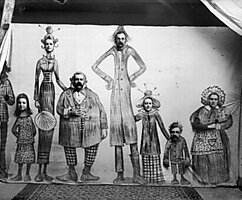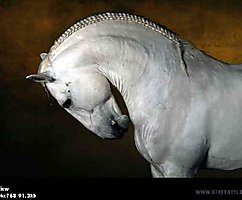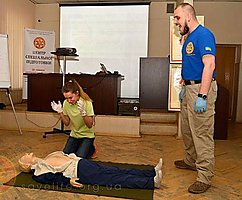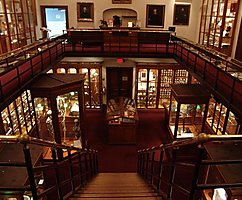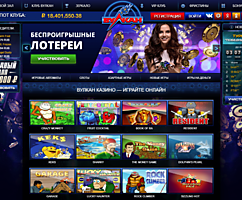Literature in the computer age
 Bashny.Net
Bashny.Net

The appearance - a sudden, in fact for a generation - computer equipment could not affect what is displayed on the screen: on the texts themselves. And certainly affected. Although this should be recognized as a moderate impact: for the most part developed computers that were originally laid down in the texts, while not offered radical innovations.
Suppose a computer indispensable achievement as hypertext. Very convenient, yes! However, the prototype of hypertext existed in the "book" literature always, I mean pagination. Previously, the reader opens the page, reading the link, now a computer user navigates to a page by clicking the link above. The method proceeds essentially similar. So almost everything: typography, editing written text (the writer's work), etc.
However, sooner or later, the number of innovations can develop into quality. On this occasion, I have a couple of reasons. Also curious to find out how readers about the outlook for the existence of literature in the computer age.
considerations 1. Variability of events h4> The idea is not new.
In computer games, there is variability of events in a literary work of variation does not exist. Computer game character is able to move in space, which, although limited, nevertheless it quite extensively to create the illusion of freedom. Wanted - went right, he wanted to - left. Protagonist of a literary work is devoid of such ability at all if Anna Karenina is destined to throw himself under a train, she is sure to rush, to live up to the October Revolution, to marry the People's Commissar of Education of the RSFSR and be shot in 1937, it did not come. And agree, it would be funny.
About variability events writers always knew, because each story - a combination of several successive versions of the myriad possible. Many writers toyed variability, attributing one literary work several different endings. A classic example - O. Henry story "The way we choose," but hardly was the first American. Another thing is that paper books do not have to variability of the method of presentation of events, if all options, even providing them with relevant links, arranged in a single volume, will hardly parsed hodgepodge. A computer screen for a new quality can be achieved easily.
Imagine that the reader "Anna Karenina", wanting something extraordinary, choose the appropriate option, and ... the heroine of Tolstoy's novel begins to behave accordingly. Technical implementation is easy, the problem lies elsewhere: composing text for each of the potentially possible moves. Increase the amount of text in a landslide progression such volumes writers do not pull as artists would not pull the computer landscape, if landscapes were drawn by hand, and not generated automatically.
Therefore, a problem in the manual text composition. When literary texts will be generated automatically, while their volumes lose value, and literature acquire a new quality - the variability of events. I can see the future of Leo Tolstoy, who for years working on the programming of the new novel "Anna Karenina". In addition to the corporate style of Tolstoy, in his novel will be many, many possible plot twists, so that intrigue the reader will have to smash his head on the fact on which of the possible storylines continue reading.
Consideration 2. Adaptability text h4> Here is another possibility in principle to bring an unprecedented quality in literature.
As you know, readers are different - with different levels of training. Some people get aesthetic pleasure from "The Brothers Karamazov", another "Da Vinci Code" seems a decent book. It depends not only on the intelligence, but also to age. What is interesting preteen, will not read unworldly man. Plus the limited time, characteristic of the modern era: sometimes you want to read a new novel by the writer N, so no. We have to put off reading in the closet or in general to give it up.
"For there are books for different age categories. If you are 10 years old, read adventure books, and if 50 years - scientific. The same applies to works of different sizes. Have time to read, read Tolstoy novel, do not have time to read - short stories. Quite busy let cost headlines. Everyone chooses his reading interests, age and volume: it always was and will be, "- tell me.
All right, so not less than adults and children, intellectuals and their mental opposites live in a single universe, they care about the same issues. Identical problems, but a different level of understanding: in this respect amounts of text directly linked to the ability to perceive them - correlation is unmistakable. Voluminous and complex texts - for intellectuals; short and simple story - for children or underdeveloped intellectually or aesthetically dyadechek and tetenek.
So, the writers continue to work separately for adults and children separately popular brochures and scientific publications? Thanks to computer technology is completely optional.
Imagine a slider, marking the degree of volume, that is to say of adaptation, the text: one end of the slider is the full text of the opposite end of the slider - the most concise text adapted. Full text - a thick volume of "Anna Karenina" to have some time intellectuals. The reader does not feel himself to be, translates the slider to an intermediate position and gets halving the text of the novel.
I draw your attention, we are talking about reducing the exclusive copyright. Perhaps Leo Tolstoy, if desired could reduce by half the novel, and it would be nice to work - probably could cut into any number of times with the same result. Why not, if the author is able to adapt to attach to the youth literature and develop those whose aesthetic preferences could be better? It is not required to separately compose teenage "Prisoner of the Caucasus": the product could be a novel at the far right slider story - at an intermediate position, and the story - at the leftmost position.
Technical realization again is not a problem: it is enough to place signs on the hierarchical level of a particular text, html duplicating the structure with its symbols and custom fonts. I do not know how it is called in the computer typography, but the meaning is clear, I hope. Suppose there are ten possible positions of the slider - ten levels of hierarchy: if you change the text on the slider corresponding hierarchical levels shown or, conversely, hidden from the reader reviews. Elementary, Watson.
Have to adjust the process of registration is not texts, but writing. The writers need arises to track levels of the hierarchy: some phrase or a paragraph to which of them are - so to reduce the text resulting from changes in the slider does not lead to distortions of meaning or fable.
The inverse image of this feature in the "book" literature - the fine print individual paragraphs. Receiving a relatively rare and ineffective, so that the interface adaptation texts Buda she ever would be implemented, can be considered a new quality in the literary business.
These are my thoughts on this - I hope it was interesting. I, in turn, are interested in your opinion on the future of literature the computer age. Therefore invited to participate in a short survey. What is the future of literature the computer age?
| 1. Everything will remain as it is. |
| 2. Literature will begin to develop in these areas in the article. |
| 3. Literature lose self-importance, becoming an integral part of the combined arts (film, animation, computer games). |
| 4. Foresee otherwise. Voted 196 people. 62 people abstained. Only registered users can vote in polls. Sign , please. Source: geektimes.ru/post/247886/ |
Tags
See also
Why have a headache from 3D / Part 4: Parallax
FOUR STAGES OF BIRTH AND DEATH four stages
The most influential books of the twentieth century
Nick Bostrom: We are almost certainly living in a computer simulation.
You and your work *
Green comes from the Nile
Book - one man, or how reading fiction makes you better
Stunning 60 "hacks" of the brain that will make your life better
50 motivational films for real travelers
Playing god at how AI has learned to win human





